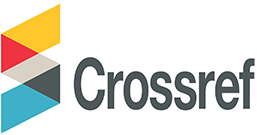Exploring Positive Parenting Skills in Adolescent Behavioral Development
DOI:
https://doi.org/10.69760/aghel.02500115Keywords:
positive parenting, adolescent development, emotional regulation, social skills, behavioral outcomesAbstract
The article addresses positive parenting and its contribution towards shaping adolescents' behavior development, with a strong emphasis placed on effective techniques such as effective communication, supportive care, consistent guidance, and sympathy. By a review of empirical studies and theoretical analysis, it is proven that such practice aids in heightened academic achievement, social competency, emotion regulation, and reduced at-risk behavior in adolescents. How positive parenting can function in a range of family types and cultures and its adaptability is addressed, with a view that personalized approaches will have to be adopted in a development of best development in adolescents. The article pleads for ongoing training and guidance for parents in an ongoing development of parental competencies, with an affirmation of community contribution towards such an activity.
References
Ambriano, C., & Bettis, A. Examining Non-Suicidal Self-Injury Disclosure in Adolescents: A Mixed Methods Investigation.
Ayas, S. (2022). Examining Individual, Relational and Environmental Dynamics of Adolescent Internet Use: A Mixed Methods Study.
Bussing, R., Koro-Ljungberg, M., Gurnani, T., Garvan, C. W., Mason, D., Noguchi, K., & Albarracin, D. (2016). Willingness to use ADHD self-management: Mixed methods study of perceptions by adolescents and parents. Journal of child and family studies, 25, 562-573.
Christenson, J. D., & Gutierrez, D. M. (2016). Using qualitative, quantitative, and mixed methods research to promote family therapy with adolescents in residential settings. Contemporary Family Therapy, 38, 52-61.
Edwards, L. M., & Lopez, S. J. (2006). Perceived family support, acculturation, and life satisfaction in mexican american youth: A mixed-methods exploration. Journal of counseling psychology, 53(3), 279.
Egeberg, H., & McConney, A. (2018). What do students believe about effective classroom management? A mixed-methods investigation in Western Australian high schools. The Australian Educational Researcher, 45(2), 195-216.
Fabregues, S., Mumbardo-Adam, C., Escalante-Barrios, E. L., Hong, Q. N., Edelstein, D., Vanderboll, K., & Fetters, M. D. (2022). Mixed methods intervention studies in children and adolescents with emotional and behavioral disorders: A methodological review. Research in Developmental Disabilities, 126, 104239.
Liu, Z., Bian, W., & Bian, Y. (2024). Leadership Blossoms in Parental Warmth: Positive Parenting Practices Shape Adolescent Leader Emergence via Intrapersonal and Interpersonal Mechanisms. Journal of Youth and Adolescence, 1-21.
Norton, C. L., Tucker, A., Farnham-Stratton, M., Borroel, F., & Pelletier, A. (2019). Family enrichment adventure therapy: A mixed methods study examining the impact of trauma-informed adventure therapy on children and families affected by abuse. Journal of Child & Adolescent Trauma, 12, 85-95.
Schiepe-Tiska, A., Dzhaparkulova, A., & Ziernwald, L. (2021). A mixed-methods approach to investigating social and emotional learning at schools: Teachers’ familiarity, beliefs, training, and perceived school culture. Frontiers in psychology, 12, 518634.
Shochet, I. M., Saggers, B. R., Carrington, S. B., Orr, J. A., Wurfl, A. M., Kelly, R. L., & Duncan, B. M. (2022). A school-based approach to building resilience and mental health among adolescents on the autism spectrum: a longitudinal mixed methods study. School Mental Health, 14(3), 753-775.
Suldo, S. M., Friedrich, A. A., White, T., Farmer, J., Minch, D., & Michalowski, J. (2009). Teacher support and adolescents' subjective well-being: A mixed-methods investigation. School psychology review, 38(1), 67-85.
Suonpera, E. M. (2021). Making the “Miracles” Happen–Parenting Stress and Experiences among Parents of Extremely Preterm Young Adolescents in England: A Convergent Mixed Methods Study (Doctoral dissertation, UCL (University College London)).
Taylor, C., Harrison, J., Haimovitz, K., Oberle, E., Thomson, K., Schonert-Reichl, K., & Roeser, R. W. (2016). Examining ways that a mindfulness-based intervention reduces stress in public school teachers: A mixed-methods study. Mindfulness, 7, 115-129.
Ungar, M., & Liebenberg, L. (2011). Assessing resilience across cultures using mixed methods: Construction of the child and youth resilience measure. Journal of Mixed Methods Research, 5(2), 126-149.
Young, R., Tully, M., Parris, L., Ramirez, M., Bolenbaugh, M., & Hernandez, A. (2024). Barriers to mediation among US parents of adolescents: A mixed-methods study of why parents do not monitor or restrict digital media use. Computers in human behavior, 153, 108093.
Downloads
Published
Issue
Section
License
Copyright (c) 2025 Acta Globalis Humanitatis et Linguarum

This work is licensed under a Creative Commons Attribution-NonCommercial-NoDerivatives 4.0 International License.







